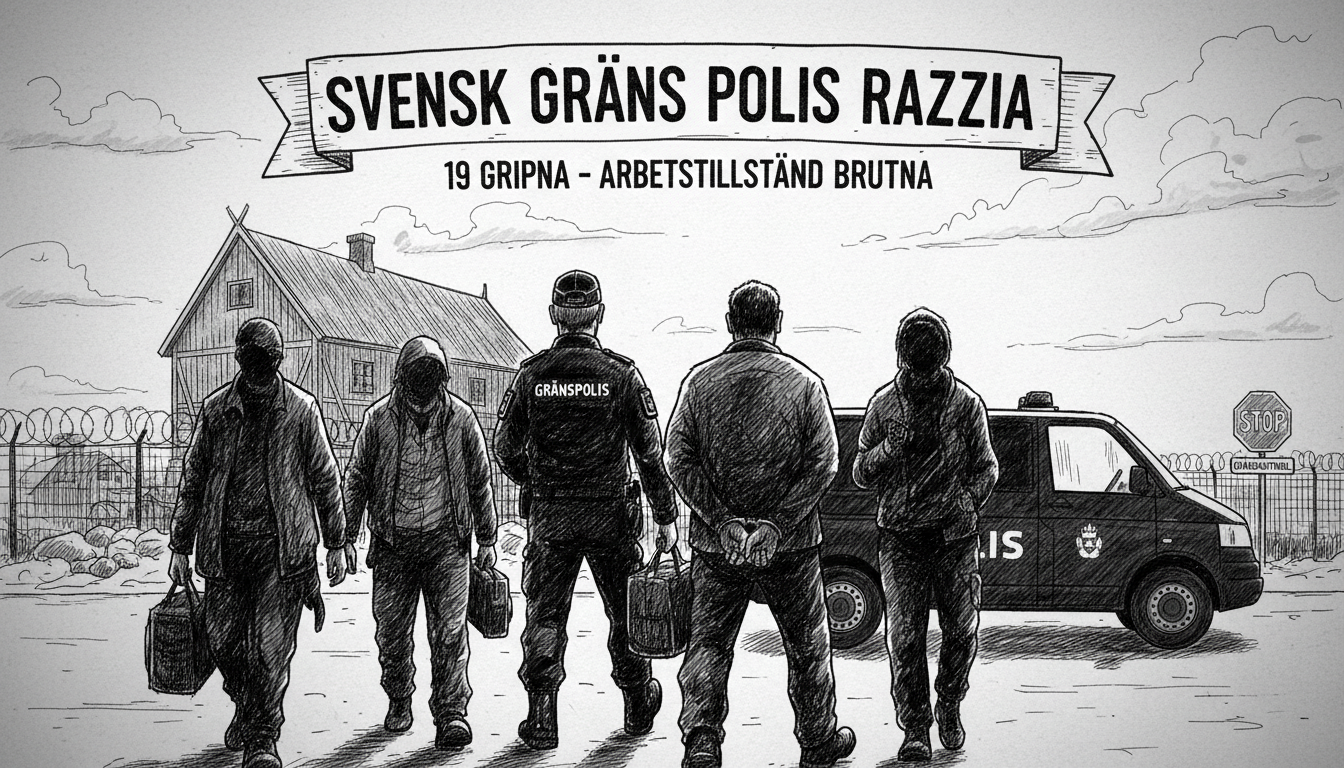Swedish border police continue processing documents following a major operation at Stegra last Wednesday. The extensive inspection led to 19 individuals being taken into custody by the Migration Agency. All face deportation orders according to officials.
Police currently suspect 15 violations of Sweden's Alien Act. These violations typically involve non-EU citizens working illegally in the country. The detained workers come from countries outside the European Union.
Joakim Lundgren, the operation commander, explained the timeline for deportations. "We work urgently with these cases," he said in a statement. "But it can take anywhere from a few days to a couple of weeks before they are sent away."
This raid highlights Sweden's ongoing challenges with labor migration enforcement. The Nordic nation maintains strict immigration policies despite its reputation for humanitarian values. Recent years have seen increased workplace inspections targeting unauthorized employment.
Sweden's Migration Agency handles approximately 70,000 cases annually. Deportation procedures typically involve verifying identities and arranging travel documents. The process becomes complex when workers lack proper identification or come from countries reluctant to accept returnees.
Workplace raids like the Stegra operation reflect broader European trends. Many EU nations struggle to balance labor market needs with immigration control. Sweden faces particular pressure due to its high standards of living and generous social benefits.
The Swedish model relies heavily on employer compliance with immigration rules. Companies hiring unauthorized workers face substantial fines and potential criminal charges. Yet demand for low-wage labor continues driving irregular migration patterns.
What consequences might these workers face beyond deportation? They could receive entry bans preventing future legal employment in Sweden. Their employers may also confront legal action for violating labor and immigration laws.
This case demonstrates how immigration enforcement operates at ground level. While political debates focus on high-level policy, actual implementation involves careful document review and procedural steps. Each case requires individual assessment despite standardized deportation orders.
Northern Sweden's remote locations like Stegra present unique challenges for authorities. Sparse populations and vast territories complicate monitoring of workplace compliance. Yet these areas often see concentrated seasonal labor demands in agriculture and construction.
The outcome of this raid will influence future enforcement strategies. Successfully removing unauthorized workers could deter similar employment arrangements. But persistent labor shortages might continue creating incentives for bypassing immigration rules.

